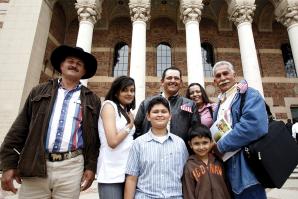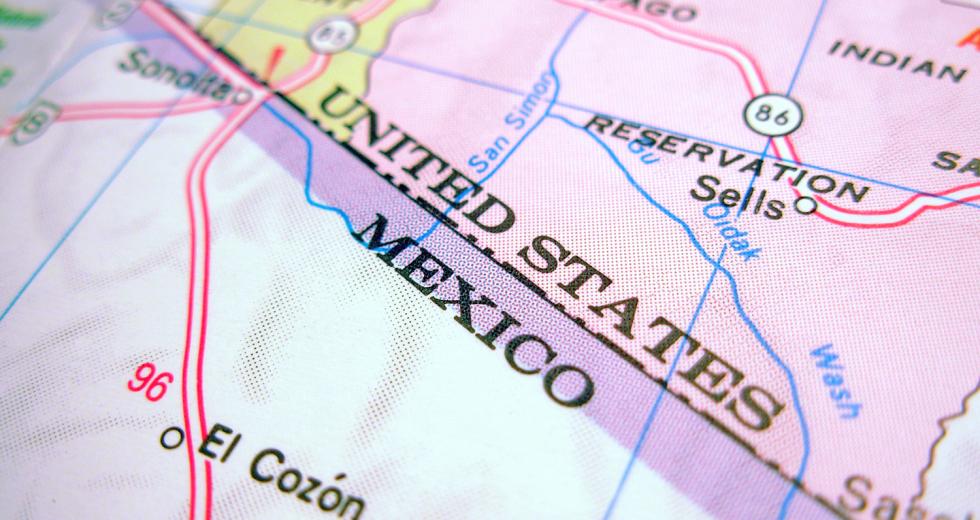Since 2011, an ever-rising number of unaccompanied children have been streaming into California from Central America. Thousands have been picked up by the U.S. Border Patrol and put into deportation proceedings.
Typically, only about half have a lawyer to represent them in immigration court. So legal-aid organizations around the state are training scores of pro bono lawyers to improve their access.
But few areas of law are as complex as immigration. One Second Circuit judge wrote in 2003 that immigration law is “a maze of hyper-technical statutes and regulations that engender waste, delay and confusion for the government and petitioners alike.”
Can a corporate lawyer or real estate attorney really navigate this never-never land as effectively as a full-time immigration attorney? Yes, say the legal aid organizations that train pro bono lawyers.
Pro bono counsels have a few things going for them. First, by representing only unaccompanied children, they can focus on a narrow band of immigration law. During a brief two-hour training, they are able to learn the essentials, says Alice Fitzgerald of national nonnprofit Kids in Need of Defense.
Second, by handling only one case at a time, they can really dig in. “A pro bono firm may not have the resources to represent 50 children,” says immigration attorney Sameera Sana Ali of Sacramento law firm Crimmigration. But at a big firm managing just the one case, attorneys have the benefit of a larger staff to help with things like research and writing briefs.
Third, legal-aid organizations assign mentors to each attorney they train. Fitzgerald says that KIND’s inhouse lawyers, who don’t take cases themselves, spend their time mentoring between 100 and 120 pro bono attorneys each. That means counseling them on case strategy, giving them relevant materials from similar cases and guiding preparation of pleadings, briefs, and paperwork.
As pro bono lawyers take additional cases, they need less mentoring. Of the 6,000 lawyers KIND has trained in the past 5 years, Fitzgerald estimates that at least half have taken on more than one case.
Finally, big law firms and corporate counsels can bring significant resources to each case — sometimes more than immigration firms themselves. Fitzgerald says bigger firms usually have greater in-house capacity, such as paralegals, interpreters and law libraries. And with more money, some hire private investigators to travel to clients’ home countries and gather evidence for children’s cases.
Of course, many corporate lawyers get a jolt when they start working inside a court system that has far fewer resources than they’re used to. Pro bono immigration court veteran Richard Horstman told the Wall Street Journal in October that his biggest challenge was dealing with the “chaos” of immigration court.
Still, many of the people KIND has trained love the work because it changes people’s lives. Says Fitzgerald, “Many of them tell me it’s the most fulfilling legal representation they’ve ever done.”
Check back next week for Steven Yoder’s January feature, “Legal Limitations,” for more information about California’s dearth of immigration lawyers. Sign up for our newsletter, and we’ll email you when it’s online.
Recommended For You

Juris Prudence
Changes to the legal market are motivating attorneys to bootstrap
Alex Medina and Brandon McKelvey’s new law firm looks more like a bootstrapped tech startup than a high-end legal practice. It’s one model among the boutique firms whose numbers have taken off in the region this year. The improving economy, a buyer’s market for legal services, and the lures of startup culture have upended Sacramento’s legal landscape.

Prospective Hires
This year law grads are more likely to land jobs
Ryan M. Norman is the son of a pharmacist, raised in Vacaville with dreams of being an FBI special agent. When that path proved unlikely, he became an attorney instead.

Immigration Reform
Arizona laws spark local dialogue
When Barack Obama was running for president in 2008, he vowed that if elected he would take up George Bush’s failed 2007 effort to reform the nation’s immigration policy, secure U.S. borders and provide a path to citizenship for undocumented persons who had lived in America for years. Since then, however, issues such as health care reform have pushed immigration to the back burner.

Slim Pickings
A shortage of farm labor impacts food harvests
Coasting through the sweeping fields of California’s Central Valley, it’s not unusual to spot collections of crouching figures diligently tending crops. These primarily Hispanic immigrants prune, thin, harvest and grow much of California’s renowned produce. But over the past decade or so, hundreds of thousands of these indispensable farm workers have vanished.




Comments
Some dislike attorneys, however, whether plaintiff or defense, seeing them in action, in their environment and passionate about a cause is truly humbling and inspirational to watch.